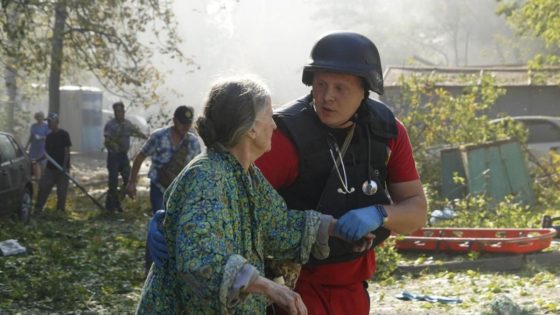“Having spent 20 years in public service, really driven by wanting to make reform happen, there is no doubt it’s gotten increasingly hard,” she says.
She believes the Overton Window, the spectrum of policies acceptable to the mainstream, has shrunk.
Former NSW premier Dominic Perrottet is on the board of Amplify.Credit: News Corp Australia
“The policy cycle has remained unchanged despite the environment of policy-making having changed exponentially.”
Harrisson says Amplify wants to “reduce the number of issues that go to the policy graveyard”.
When asked for examples, she cites gambling reform in NSW and stamp duty reform between the state and federal governments, both floated and duly abandoned by different politicians.
Amplify will start with the existential problems of declining engagement in our democracy and increased social division before moving on to more tangible issues like the housing crisis, healthcare, education, crime, justice and economic growth.
“Evidence-based policy isn’t ideological and we need to make room for it,” Harrisson says.

Rona Glynn-McDonald, director of First Nations Futures.
Melbourne-based entrepreneur Bassat says it is inarguable that “we are dealing with a situation with more polarisation and the social media algorithm is entrenching us in positions”.
He believes Australians look overseas to countries where these divisions are worse, and feel thankful for our strong democracy. But, he says, many Australians worry we are heading in the wrong direction when it comes to constructive engagement with each other on difficult issues.
The traditional institutions of community engagement, such as churches, mosques, synagogues, unions, political parties and Rotary clubs are shrinking.
Bassat hopes Amplify will go some way towards filling that civil society gap.
Importantly, the organisation is non-partisan.
“We think Australians agree with each other more than we disagree, even though our social media algorithm would tell us otherwise,” Bassat says.
He hopes that Amplify will generate public debate over important policy, and give politicians some political cover to discuss controversial topics without being shouted down.

Tabcorp CEO and former AFL boss Gillon McLachlan.Credit: Eamon Gallagher
“It is hard for politicians to drive change because they will be smashed, often by well-organised campaigns,” he says.
“We hope we can be a counterbalance to those forces.”
The organisation’s 10-member board includes Tabcorp CEO and former AFL boss Gillon McLachlan, former NSW premier Dominic Perrottet (now head of US corporate and external relations for BHP), NRL commissioner Kate Jones, a former Queensland Labor minister, Rona Glynn-McDonald (director of First Nations Futures) and Zara Seidler, co-founder of The Daily Aus, a social media-based news outlet aimed at young people.
Bassat says any conflicts will be managed with transparency. For example, a potential conflict between McLachlan’s role as head of gambling giant Tabcorp, and a policy discussion on the hot topic of gambling or poker machine reform.
Speaking before he leaves to commence his new job in the United States, Perrottet said Amplify would have been invaluable when he was trying to drum up support for economic reform as NSW Treasurer.
“Stamp duty reform is a key one,” he says.
“We need more voices in an apolitical way driving better public policy outcomes to help public discourse.
Perrottet says Amplify can “add great value to our democratic life”.
“We need more voices in the development and laying the foundation for better public policy across the country.”
As for recruitment, Amplify’s doors are wide open.
“I hope we get everyone; younger people, older people, people from inner and outer suburbs and rural and regional Australia, people whose families have been here for five or six generations and people who have just arrived, people who have some money and those struggling to pay the mortgage,” Bassat says.
“They just have to bring a curiosity in what other people have to say.”
Source Agencies

